Now that the legislative proposals have been in circulation for a couple of weeks, farmers are beginning to form opinions. Few of them are positive because to begin with there is no such thing as a good cut, no matter how often we are told how it could have been worse.
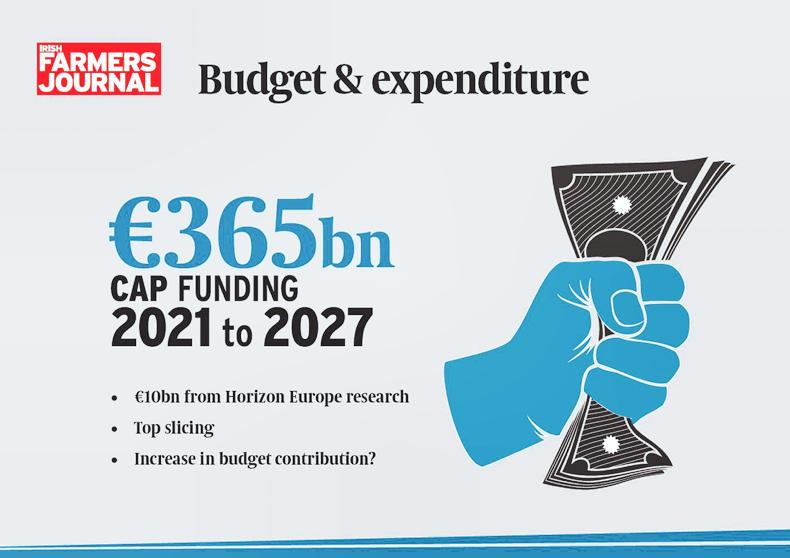
The reality is that agriculture has again slipped down the pecking order in Brussels, claiming just 28% of the EU budget, the lowest since the CAP was set up first in 1962.
Priority of CAP in EU
The reality is that food shortages are only now remembered by people over 70 and the method of farming that is now expected from EU farmers is now well established. It is assumed that Europe will have food security and farmers are legally bound to operate without the assistance of hormones or use of lactic acid in washing carcases as is the established practise elsewhere. Imagine if there was no issue with dirty cattle or sheep in factory lairages because there was a chemical solution as opposed to clipping?

With agriculture dropping further down the overall Brussels priority, the European Commissioner for Agriculture is attempting to protect some categories of farmer and at the same time try and reinvigorate the sector by attracting young farmers in.

There isn’t a single person that would disagree with these objectives. The problem is that supporting these will be at the expense of the payment to other farmers.
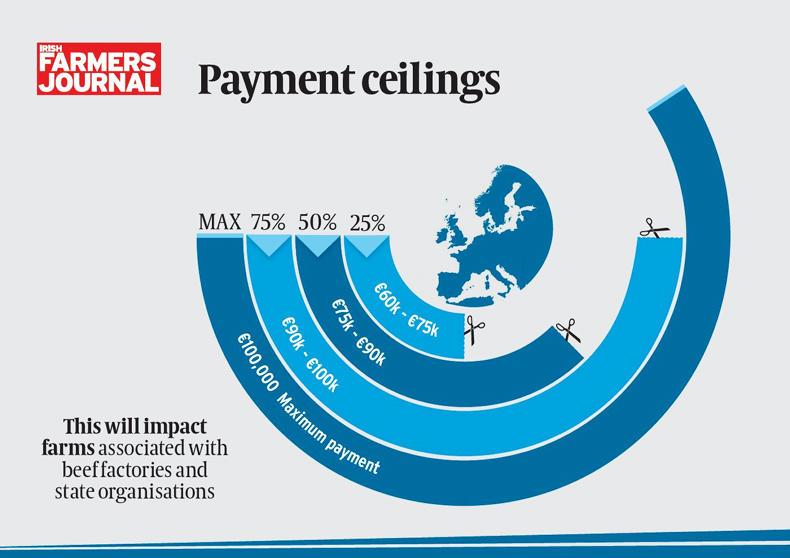
Savings made by capping payments at €100,000 and reductions over €60,000 will be retained by each country and can be diverted to small and medium farmers. However, in the case of Ireland this will generate very little money as very few people will be affected by the upper limit of payments. Even those who are can subdivide their business and have two claims under the limits made instead of one.
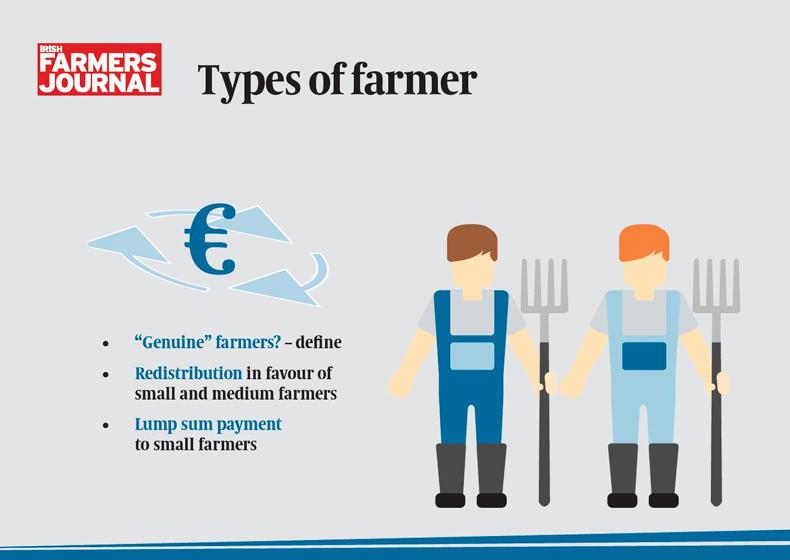
The biggest twist is leaving member states to work out the difficult issues of defining what a genuine farmer is and what a small and medium farmer is. Ministers for agriculture across the EU have made their objections known at their last get together, and it does feel like Brussels has passed the difficult decisions on to the individual members.
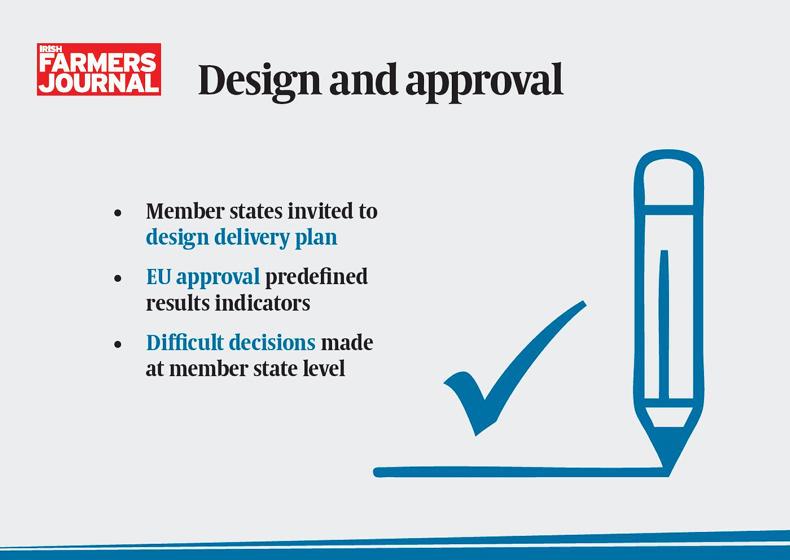
While everyone has their own view of what a genuine farmer is, getting a legal definition that will get widespread approval will be more difficult.
It is the same with small and medium farmers. Nobody will begrudge money going to small farmers as for many of them it is a marginal business yet their production creates the raw material for the processing industry and is the backbone of growing exports. The problem is that any front loading of payments will be at the expense of more substantial farmers who are wrongly perceived as being able to afford it.
The reality is that a farm that is employing a family unit full-time will be a very substantial business with huge capital investment but if the business is livestock, it is likely that disposable income will be very small. In this case, the direct CAP payment is the difference between being viable and not being viable.
This “squeezed middle” of farming are no position to forsake a slice of their payment to fund smaller, most likely part time farmers with an off farm income, no matter how worthy and deserving they are.

Read more
Hogan reform: what happens next
Full coverage: CAP 2020
Now that the legislative proposals have been in circulation for a couple of weeks, farmers are beginning to form opinions. Few of them are positive because to begin with there is no such thing as a good cut, no matter how often we are told how it could have been worse.

The reality is that agriculture has again slipped down the pecking order in Brussels, claiming just 28% of the EU budget, the lowest since the CAP was set up first in 1962.
Priority of CAP in EU
The reality is that food shortages are only now remembered by people over 70 and the method of farming that is now expected from EU farmers is now well established. It is assumed that Europe will have food security and farmers are legally bound to operate without the assistance of hormones or use of lactic acid in washing carcases as is the established practise elsewhere. Imagine if there was no issue with dirty cattle or sheep in factory lairages because there was a chemical solution as opposed to clipping?

With agriculture dropping further down the overall Brussels priority, the European Commissioner for Agriculture is attempting to protect some categories of farmer and at the same time try and reinvigorate the sector by attracting young farmers in.

There isn’t a single person that would disagree with these objectives. The problem is that supporting these will be at the expense of the payment to other farmers.

Savings made by capping payments at €100,000 and reductions over €60,000 will be retained by each country and can be diverted to small and medium farmers. However, in the case of Ireland this will generate very little money as very few people will be affected by the upper limit of payments. Even those who are can subdivide their business and have two claims under the limits made instead of one.

The biggest twist is leaving member states to work out the difficult issues of defining what a genuine farmer is and what a small and medium farmer is. Ministers for agriculture across the EU have made their objections known at their last get together, and it does feel like Brussels has passed the difficult decisions on to the individual members.

While everyone has their own view of what a genuine farmer is, getting a legal definition that will get widespread approval will be more difficult.
It is the same with small and medium farmers. Nobody will begrudge money going to small farmers as for many of them it is a marginal business yet their production creates the raw material for the processing industry and is the backbone of growing exports. The problem is that any front loading of payments will be at the expense of more substantial farmers who are wrongly perceived as being able to afford it.
The reality is that a farm that is employing a family unit full-time will be a very substantial business with huge capital investment but if the business is livestock, it is likely that disposable income will be very small. In this case, the direct CAP payment is the difference between being viable and not being viable.
This “squeezed middle” of farming are no position to forsake a slice of their payment to fund smaller, most likely part time farmers with an off farm income, no matter how worthy and deserving they are.

Read more
Hogan reform: what happens next
Full coverage: CAP 2020










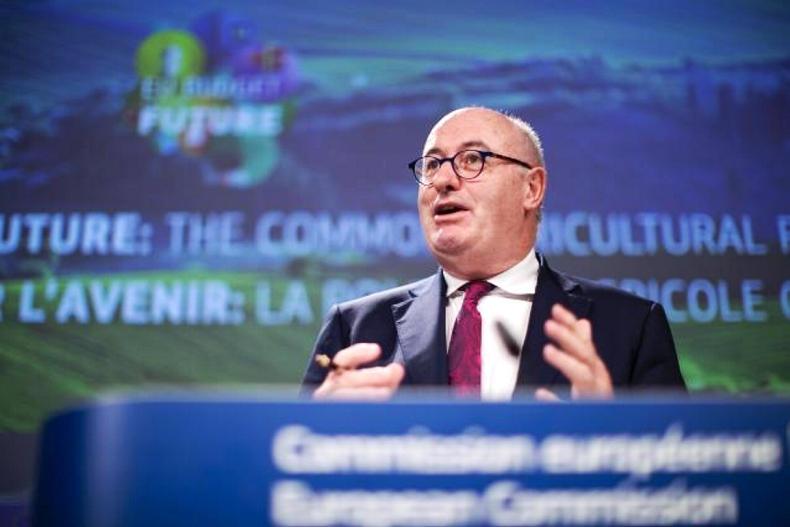

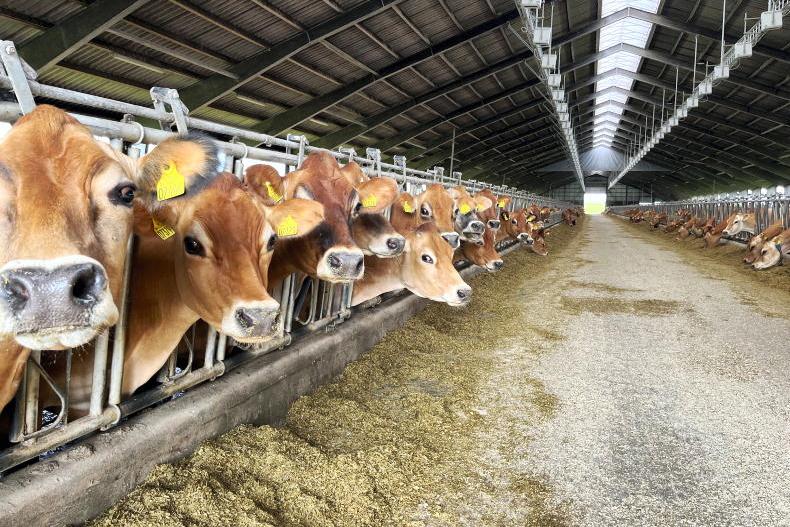


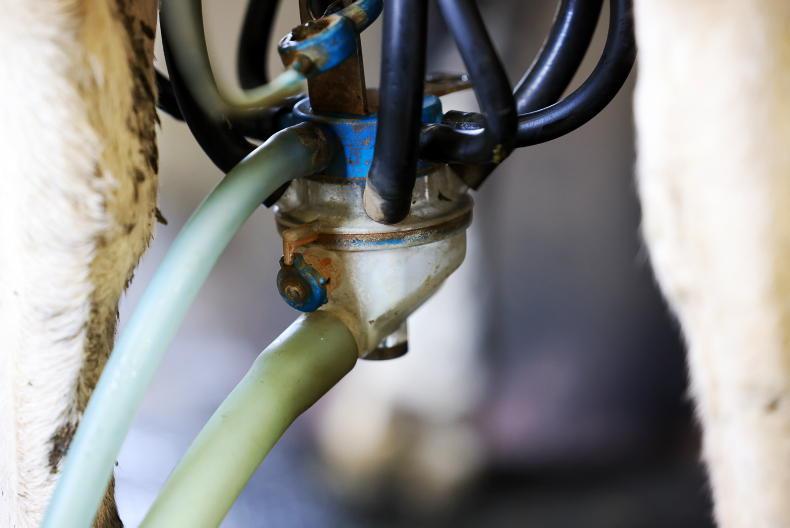
SHARING OPTIONS